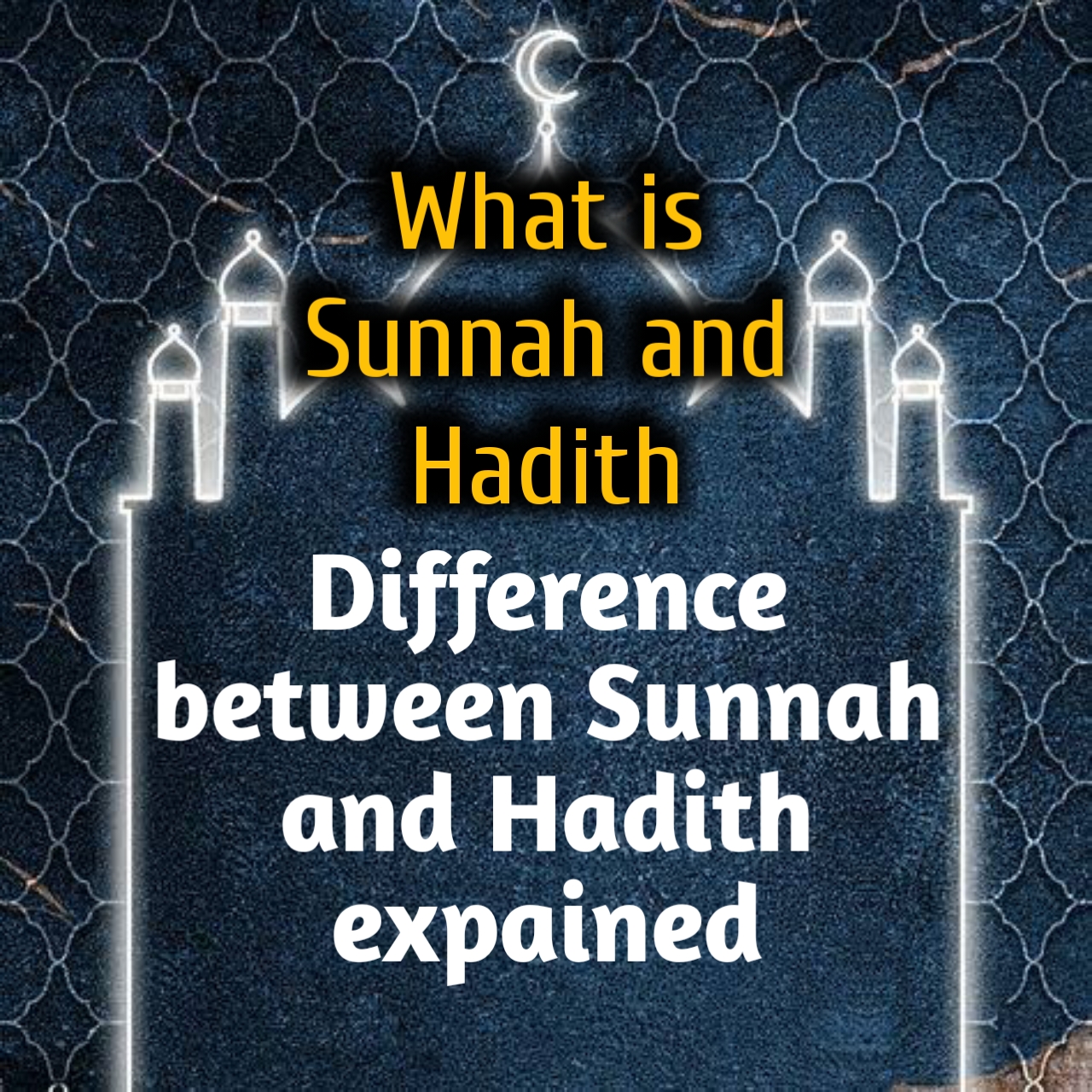ADVERTISEMENT
Many Muslims are using both terms Sunnah and Hadith interchangeably thinking that they can be used to mean the same thing. Both terms have similarities but different connotations as well as different usage in the Quran. In fact, assigning meanings similar to hadith and Sunnah may lead to complications. But here’s the full explanation of the difference between Sunnah and Hadith.
Is there a relationship between Sunnah and Hadith?
In fact, both terms can mean the same thing only who studied the science of Usul-elfeqh can easily know how to use each term and distinguish between Sunnah and Hadith.
And, in this article, the different meanings of Sunnah and Hadees will be explained.
The difference between Sunnah and Hadith
Hadith is more general than Sunnah. The scholars of Hadith often use use them in a way that indicates that they are synonymous.
If the hadith is general and includes the sayings and what he did – peace be upon him – then the Sunnah is specific to his actions he did frequently. In other words, Hadith are the the reports about the prophet while Sunna is limited to certain actions taken from these reports a Muslim will be rewarded if he did these actions.
In addition, We can know the difference by knowing the definition of Hadith and Sunnah then knowing when to use each term.
Hadith definition

Hadith is a science that studies everything the prophet said, did, or allowed. As Hadith refers to the science, it can also refer to a single report from the prophet PBUH. Example for a hadith Hadith on sincerity Of Intention to Allah in Islam.
Sunnah definition:
Sunnah linguistically means a way of life or a certain behaviour.
In Sharia law, it’s a collection of traditional practices of the prophet Muhammad’s based on his sayings and actions.
ADVERTISEMENT
The prophet PBUH named the Sunnah in a Hadith he said “You adhere to my Sunnah and the Sunnah of the Rightly Guided Caliphs”.
According to Hadith scholar, The Sunnah is everything concerning the Prophet – may Allah’s prayers and peace be upon him – from his biography, action, saying and way of life.
According to Fiqh scholars, Sunnah is a ruling less than Wajib. Wajib is an obligation the one who does it is rewarded and the one who neglects it is punished. As for the Sunnah according to them, it is what the one who does it is rewarded and the one who neglects it is not punished for what the Messenger did and persevered upon.
The hadith is narrated on the authority of the Prophet PBUH that he did such-and-such even once. As for the Sunnah, it is a frequent occurrence of what he did like praying two Rakats after Maghreb.
When Sunnah and Hadith are synonymous
In some cases, Hadees and Sunna can be used to mean the same thing while in others one term only can be used to express the correct meaning.
In the following lines, we can find cases when we can use both terms interchangeably:
- What is narrated about the Prophet of saying, doing or declaring: it is called a “hadith,” as it is also called a “sunnah.”
- Among the names of the surviving sect and the sect that preserves the commands of Allah: They are called “Ahl al-Hadith,” and they are also called “Ahl al-Sunnah.”
- The books that deal with the transmission of the traceable and endowed traces and the sayings of the righteous predecessors: they are called “books of hadith”, and they are also called: “books of the Sunnah.”
Key differences between Hadith and Sunna
Here are the cases when there is a difference between Sunnah and Hadith:
- The guidance of the Prophet, may Allah bless him and grant him peace, the comprehensive and fixed in all his affairs is called “Sunnah” meaning his method way and path and scholars – often – do not use the term “hadith” here.
- The scholars also call adhering to the value mentioned in the Sharia and not adding to or innovating in religion as “Sunnah”, and they do not call that “Hadith”. And there is the famous saying of Abd al-Rahman ibn Mahdi: “Sufyan al-Thawri is an imam in hadith, not an imam in the Sunnah, al-Awza’i is an imam in the Sunnah, not an imam in hadith, and Malik ibn Anas is an imam in both of them”.
- Al-Haafiz Abu Amr ibn al-Salah was asked: Some said on the authority of Imam Malik that he combined the Sunnah and hadith, so what is the difference between the Sunnah and hadith? He, may God be pleased with him, replied: The Sunnah here is against heresy and innovation, and a person may be from the people of hadith and he is an innovator, and Malik, may God be pleased with him, combined the two Sunnahs, so he was a scholar of the Sunnah, i.e. hadith, and a believer of the Sunnah, i.e. his doctrine was that of the people of truth without innovation.
- The scholars of Fiqh use the term “sunnah” to clarify the ruling on the desirability of a specific act, i.e recommendation and they do not use the term “hadith.”
- When scholars speak of narrations of Hadith in validation or weakening, i.e identifying the Hadith is Sahih or not, they only use the term “hadith” and do not use the term “sunnah.” They say: This is a weak hadith, and they do not say: This is a weak Sunnah, on the grounds that the “Sunnah” is what is proven from the hadiths, and that is why they sometimes say: This hadith is contrary to analogy, Sunnah and consensus.
These are all the cases of synonymous and difference between Sunnah and Hadith. If you have any questions I will be glad to help in comments
ADVERTISEMENT


salaaam do you have any reference of your research…
I will add some to the article. But check any Arabic glossary.